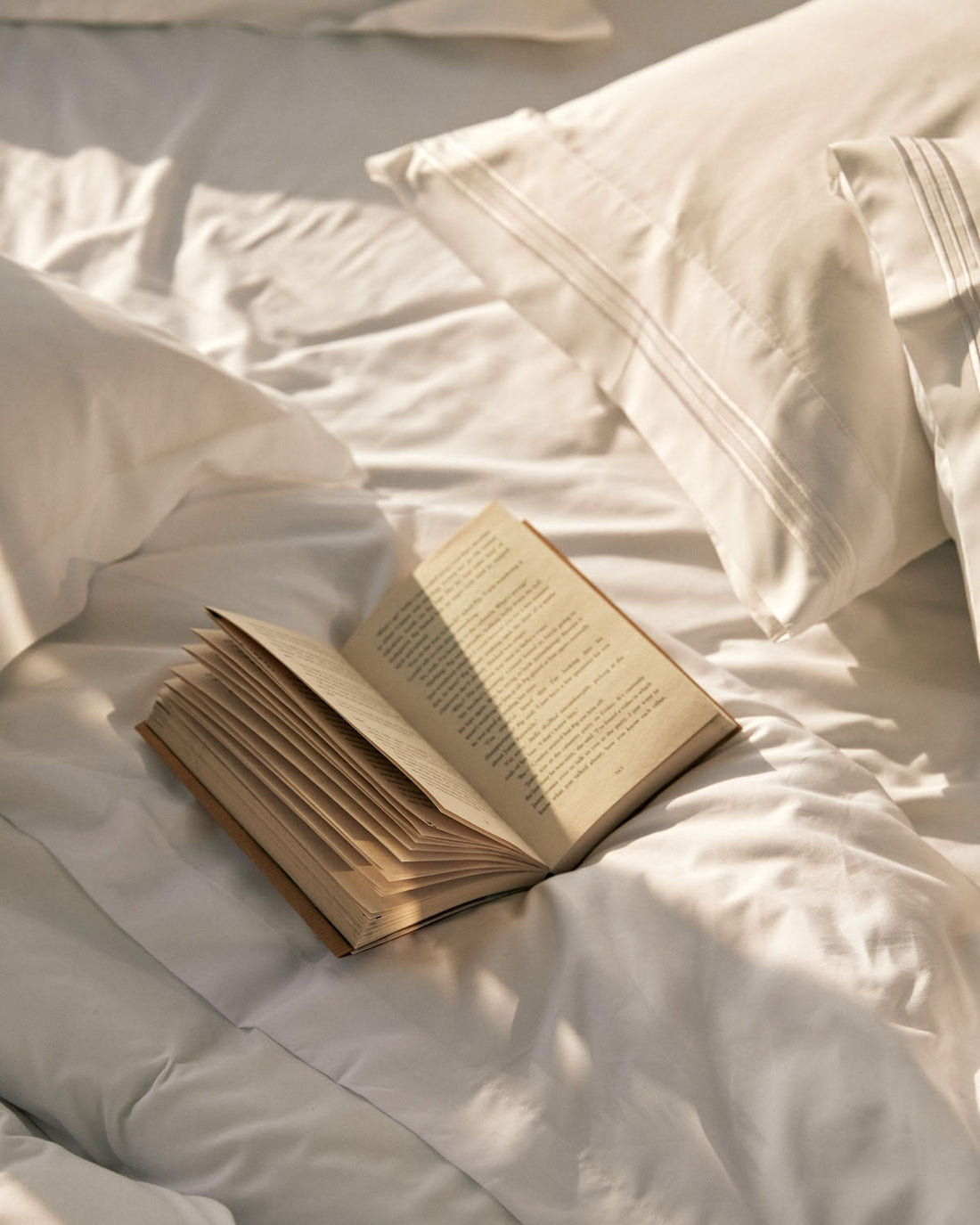You’ve dialed in your nutrition. You get your workouts in. You sip your morning EVOO shot (hello, Kosterina family). But there’s one pillar of health that often gets pushed aside for late-night emails, Netflix, or doom-scrolling: sleep.
And here’s the kicker: no supplement, superfood, or fitness routine can undo the damage of poor sleep. As neuroscientist Dr. Matthew Walker, author of Why We Sleep, puts it: “Sleep is the single most effective thing we can do to reset our brain and body health each day.”
Below, we dig into why sleep matters—and answer your most Googled sleep questions—so you can fine-tune your nightly routine.
Why Sleep Matters: More Than Just Rest
Think of sleep as your body’s built-in upgrade system. Every night, your brain and body run “maintenance checks” that affect everything from your immune system to your emotional resilience.
- Physically: Deep sleep repairs tissues, balances hormones, lowers inflammation, and strengthens your immune defenses.
- Mentally: Sleep consolidates memories, primes learning, and enhances creativity.
- Emotionally: REM sleep acts like overnight therapy—helping you process emotions, regulate stress, and feel more balanced the next day.
Without it? You’re not just tired—you’re more prone to weight gain, mood swings, brain fog, and even chronic disease.
Sleep Science with Dr. Matthew Walker: Why He’s the Expert
Who should we trust when it comes to sleep? Dr. Matthew Walker is a neuroscientist and professor at UC Berkeley and the founder of the Center for Human Sleep Science. His book, Why We Sleep, has become a go-to guide for understanding how sleep shapes memory, focus, mood, immune health, and longevity.
Walker’s research makes it clear: sleep isn’t passive—it’s one of the most active and essential processes our body performs. Some compelling insights:
Memory & Learning
Sleep before learning “resets” your brain like clearing inbox space, and sleep after learning locks in those memories long-term. Skip it, and recall drops significantly.
Immune Strength & Healing
After just one night of 4–5 hours of sleep, natural killer cell activity (your cancer-fighting immune soldiers) can plummet by up to 70%. Long-term, short sleep increases risk for heart disease, diabetes, Alzheimer’s, and more.
Emotional Balance & Creativity
REM sleep ramps up emotional processing—helping you put tough experiences into perspective and sparking creative problem-solving. It’s one reason great ideas often strike after a good night’s sleep.
Longevity & Productivity
Six hours of sleep for 10 days straight can impair performance as much as pulling an all-nighter. Chronic sleep deprivation literally shortens lifespan—sleep is a life-support system.
Your Most Googled Sleep Questions—Answered
1) How many hours of sleep do I really need?
Most adults thrive on 7–9 hours per night. For many, the sweet spot is 7.5–8 hours. Less than 7 hours consistently? The science is clear: it takes a toll on health, mood, and performance—even if you feel you’ve “adapted.”
2) How can I get more deep sleep or REM sleep?
You can’t force specific stages, but you can set the stage:
- Stick to a consistent sleep/wake schedule (yes, even weekends).
- Keep your room cool (around 65–68°F is ideal).
- Avoid caffeine after 2 p.m. and heavy meals late at night.
- Dim lights in the evening—your brain reads bright light as a “stay awake” signal.
- Avoid alcohol. Even one drink can disrupt sleep architecture.
- Get morning sunlight. Early light anchors your body clock; a brief walk adds stress-reducing movement and fresh air.
3) Why do I wake up tired even after 8 hours?
It might be when you wake up. Sleep runs in ~90-minute cycles of light, deep, and REM. If your alarm yanks you out of deep sleep, you’ll feel groggy (sleep inertia). Try adjusting your bedtime to wake after 7.5 or 9 hours, or experiment with a smart alarm.
4) What are signs of poor sleep quality?
- Taking longer than ~30 minutes to fall asleep or frequent awakenings
- Snoring, gasping, or morning headaches (talk to your clinician)
- Relying on caffeine to function most days
- Waking unrefreshed, brain fog, or mood swings
The Better Sleep Checklist (Tonight)
- Set a consistent bedtime and wind-down alarm 60 minutes before lights out.
- Dim overhead lights; switch to lamps and screens’ night modes.
- Keep the bedroom cool, dark, and quiet (consider blackout shades and a fan).
- Front-load caffeine (none after 2 p.m.) and skip nightcaps.
- Get 5–10 minutes of morning sunlight exposure.
Pro tip: Pair your sleep routine with a simple morning ritual you’ll actually keep. Our community loves a small EVOO shot to kickstart the day—rich in polyphenols and deliciously peppery.







